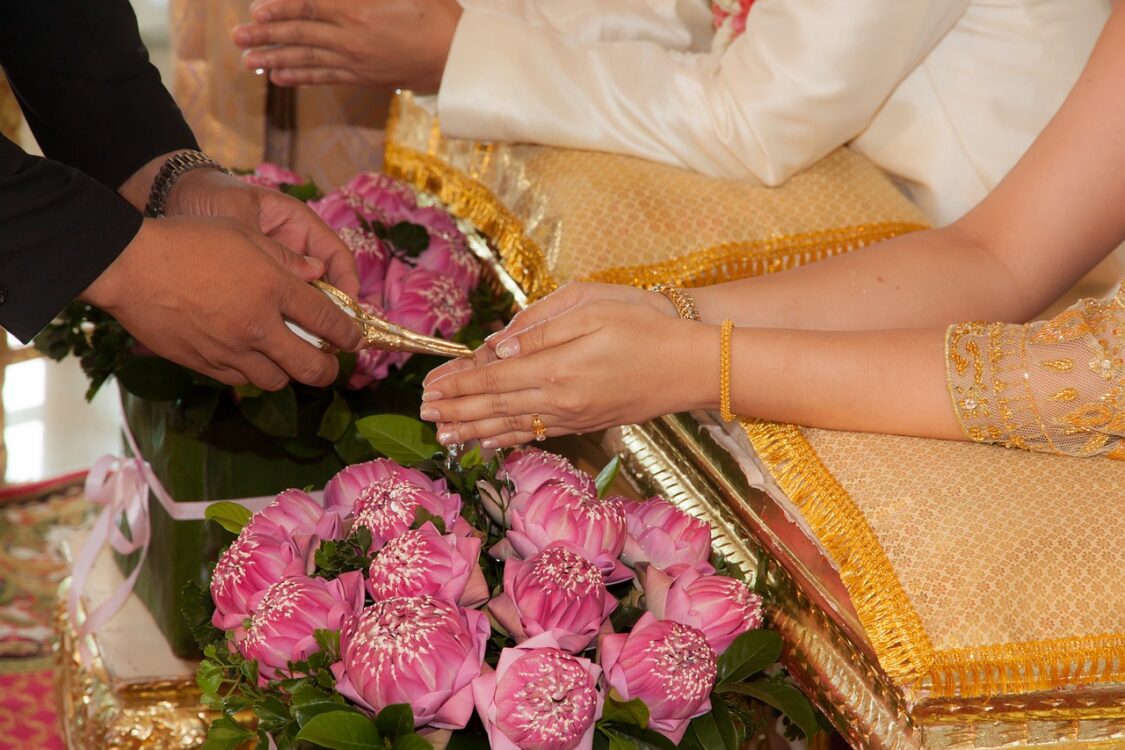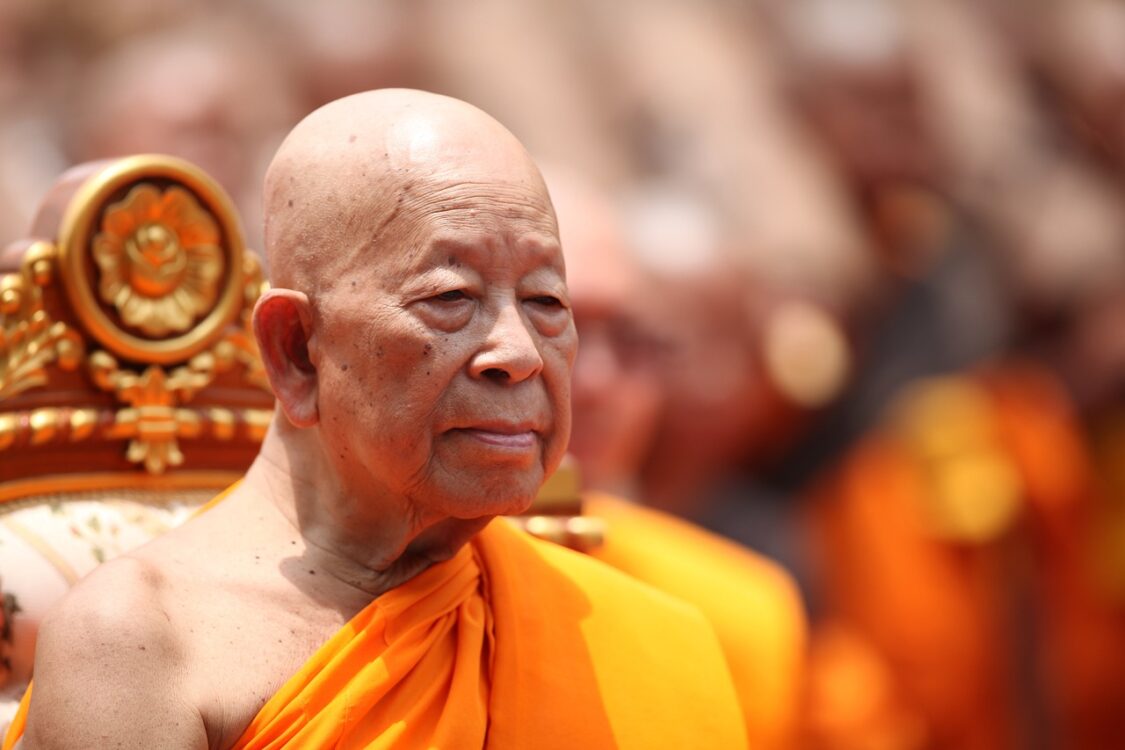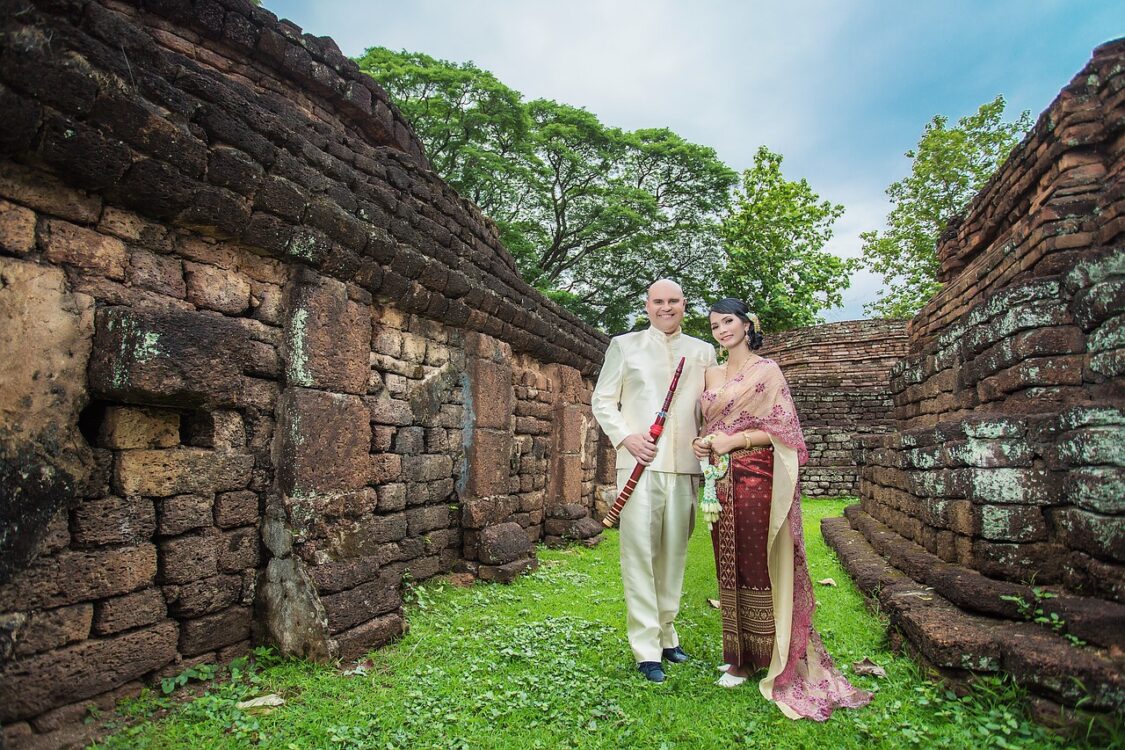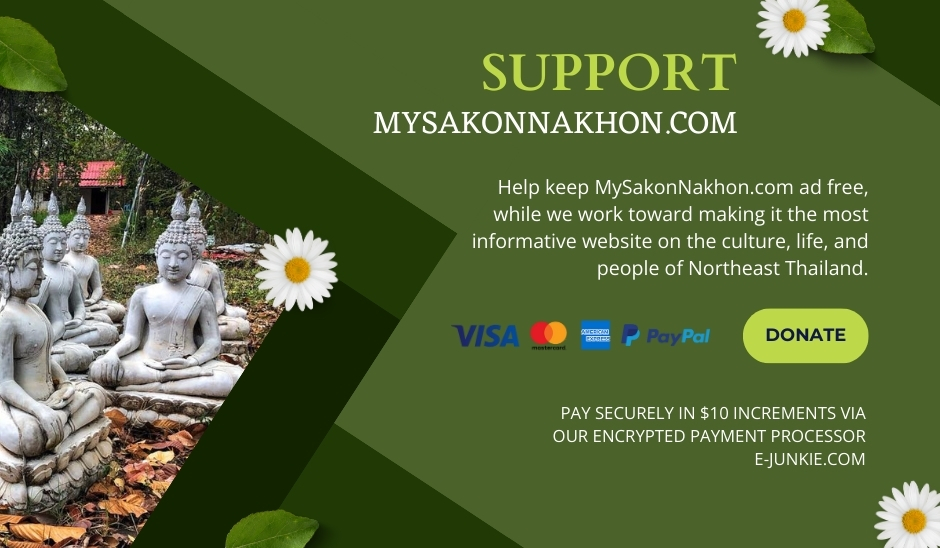
Thai Marriage Advice – Counseling of Buddhist Monks

In Thailand there are few professional marriage counselors, except in the upper class social circles of Bangkok. Thai marriage counseling traditionally has been handled by head monks at village temples, and this practice continues to this day — although only a small percentage of Thai couples seek out this assistance when having problems.
When Thai monks offer marriage advice, they often emphasize what is called The 4 Somchiwitham (สมชีวิธรรม ๔). These are the 4 dharma principles of Buddhism which create harmonious marriages and a solid foundation for a long lasting partnership.

The 4 Buddhist principles for creating Thai harmony in marriage are defined as:
1. Somsatta (สมสัทธา): to have a similar faith and attitude toward the doing of good deeds, making merit, and becoming a better person. Husbands and wives who have equally strong beliefs in these matters will live together longer than those with differing opinions.
2. Somsila (สมสีลา): to follow similar morality, ethics, and good habits. A husband and wife will understand each other better and live in greater harmony if both are committed to speaking in kind terms and being respectful of the needs and rights of others, while sharing a similar temperament.
3. Somjaka (สมจาคา): to share an equal willingness to sacrifice, be generous, and serve others. Happy couples in Thailand have open minds, and delight in eliminating their own selfishness, stinginess, and narrow-mindedness. A harmonious Thai marriage is where both partners are quick to sacrifice their personal wants for the greater good of their spouse and family.
4. Sompanya (สมปัญญา): To have well-matched wisdom, intelligence, and knowledge. Marriage problems often occur because the husband and wife react emotionally toward each other, instead of letting their actions be guided by the wisdom of the dharma, and an understanding of sin, merit, and the benefits of doing good, which include relief from suffering, irritation, and anxiety.
It is easy for Thai married couples to be out of sync in these areas (or perhaps they never were in sync to begin with!). It thus is the Buddhist monk’s task to try to guide the couple onto the golden path of having equal faith, morality, generosity, and wisdom.
This is done in part by reminding the Thai couple of the Buddhist Eightfold Path, and how it can be applied to married life in Thailand.

The Eightfold Path to a Happy Marriage in Thailand
Buddhist monks in Thailand will often teach married couples how to better cultivate:
1. Right Views:
Cultivate a realistic and positive perspective on your Thai marriage. Understand that both you and your spouse are imperfect and that challenges are opportunities for growth. Instead of seeing differences as obstacles, view them as opportunities for mutual understanding and personal development.
2. Right Intentions:
Develop intentions of love, kindness, and commitment towards your spouse. Be mindful of your motivations and aim for mutual well-being. Instead of approaching conflicts with the intention to win or prove a point (which is especially poisonous in Thai marriages), work toward finding solution that benefits both you and your partner.
3. Right Speech:
Communicate to your husband or wife with honesty, kindness, and clarity. Avoid harmful words and cultivate a culture of open communication. Choose words that express your feelings without blaming your Thai partner, or causing them to lose face.
4. Right Actions:
Act in ways that promote marital harmony and mutual well-being. Be faithful, supportive, and considerate in your actions. Take time to help your partner with tasks, showing appreciation through small gestures that regularly demonstrate your commitment to a happy marriage in Thailand.
5. Right Livelihoods:
Choose a livelihood (job) in Thailand that aligns with ethical and moral principles, ensuring that it supports both the financial and emotional well-being of your family. Pursue a career that allows for a balanced work-life schedule, preventing excessive stress that could negatively impact your Thai marriage. Enthusiastically support your spouse in their work endeavors (even when they don’t succeed).
6. Right Efforts:
Make a continuous effort to infuse your Thai marriage with positive qualities, such as patience, understanding, and love. Invest time and energy in activities that strengthen the bond between you and your spouse (and your Thai in-laws), like spending quality time together, engaging in shared interests, and resolving conflicts constructively (without placing blame).
7. Right Mindfulness:
Stay present and attentive to your Thai partner’s needs and feelings. Cultivate awareness of your own emotions and reactions, especially its impact on your tone of voice. Listen closely during conversations, and be mindful of your emotional responses to avoid unnecessary conflicts.
8. Right Concentration:
Develop mental focus and emotional balance to handle challenges with a clear and calm mind. In moments of stress or disagreement in your Thai marriage, practice mindfulness or meditation techniques to maintain composure and approach problem-solving with clarity. Seek out solitude and nature instead of alcohol to develop the habit of thinking and seeing clearly.
I would reckon that this traditional Thailand marriage advice is superior to anything that a professional marriage counselor has to offer.
- The Royal Ploughing Ceremony in Thailand – A History - May 8, 2024
- Dying Well the Buddhist Way in Thailand - May 7, 2024
- Comforting Words for the Brokenhearted in Thailand - May 6, 2024




